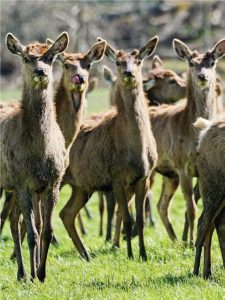BY: LYNDA GRAY
 Deer farmers have copped the brunt of the Covid-19 effect on red meat prices.
Deer farmers have copped the brunt of the Covid-19 effect on red meat prices.
Silver Fern Farms and Alliance enforced on suppliers from early May a “base” schedule price with the possibility of a top-up payment depending on the eventual market price received.
Hardest hit are SFF suppliers, who in the week beginning May 10 were offered prices ranging from $3.80 to $5/kg, depending on weight. For the same week Alliance prices ranged from $5.70 to $6.50/kg.
John Somerville, NZDFA chair said deer farmers were aware of the pressures along the supply chain most but were blindsided by the new payment arrangement.
“Most farmers were getting everything killed before the lockdown at about $7/kg and then it was ‘bang’ – a lot of farmers are angry at the suddenness of it all.”
Specialist venison exporter Duncan NZ was sticking with its usual schedule payment system although chief executive Andrew Duncan said in a newsletter to suppliers that this arrangement might not be sustainable.
He said that a big influence on demand will be the time it takes to unclog the supply chain of venison held in cold storage during the lockdown of restaurants and foodservice distributors. This product would be first in line for consumption as demand slowly kicked in, so a lag time in new orders was inevitable.
Mountain River would continue to offer a “competitive schedule”, marketing manager John Sadler said. He downplays the significance of Covid-19 on the price plunge and says that stocks of venison had been accumulating well before the pandemic.
“There was too much stock and then Covid came along. Its impact kicked in after the main venison season, but my concern is how it will effect the next chilled season.”
He blames the stocks build-up in part to the “pet food bubble” of 2017-2018 leading some marketers to divert venison from European wholesalers to the higher paying United States pet food market. That bubble burst and left New Zealand exporters with a stock problem when they failed to get back into European markets.
Sadler said venison, unlike lamb or beef, lacked liquidity in marketing terms. It was a niche and seasonal product of small volumes which was difficult to swap in and out of markets.
“Unfortunately, the meat industry is based on short-term pricing which makes it difficult when you’re trying to develop and support long term marketing strategies.”
While it might be cold comfort for deer farmers, he believed the long-term prospects for venison were good.
“My opinion is that we will ride through this. It’s a short-term problem, but exactly what that means remains to be seen.”




